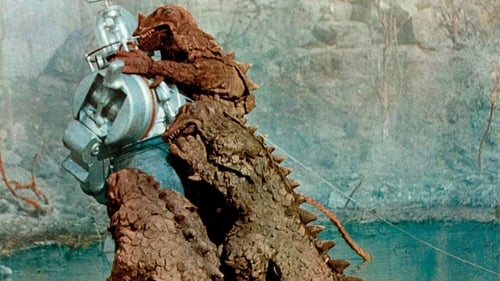Pavel Klushantsev
Birth : 1910-02-25, Saint Petersburg, Russian Empire
Death : 1999-04-27

The Russian filmmaker, Pavel Klusjantsev, has had an extraordinary influence on an entire genre of films. Throughout his career at the film studio in St. Petersburg, Klushantsev pioneered and invented legendary techniques for filming the planets, stars and weightnessless - long before anyone else. He went on to redefine the science fiction genre and influence the way Hollywood made their science fiction films, including the Academy Award-winning Visual Effects Master, Robert Skotak, a man who spent years trying to track Klushantsev down

Self
Documentary on russian science fiction director Pavel Klushantsev.

Director
A popular science film dedicated to research of the Earth from spacecraft, instilling a sense of empathy for protection of the Earth's natural resources.

Writer
Like the previous film Luna produced by Klushantsev, the film Mars was created at the intersection of educational science films and science-fiction. It consists of seven pieces, which tell (based on scientific understanding of the 1960s) of the physical conditions on planet Mars, the possibility of life on Mars and what forms it might take, of Martian canals and "seas" of the Red Planet. In addition, the film includes the director's fantasy hypothetical forms of life on mars, and of the exploration and colonization of Mars in the near future.

Director
Like the previous film Luna produced by Klushantsev, the film Mars was created at the intersection of educational science films and science-fiction. It consists of seven pieces, which tell (based on scientific understanding of the 1960s) of the physical conditions on planet Mars, the possibility of life on Mars and what forms it might take, of Martian canals and "seas" of the Red Planet. In addition, the film includes the director's fantasy hypothetical forms of life on mars, and of the exploration and colonization of Mars in the near future.

Writer
Science fiction/documentary film about man's voyages to the moon.

Director
Science fiction/documentary film about man's voyages to the moon.

Writer
Four Soviet cosmonauts land on the planet Venus and find it teeming with life, some of it dangerous.

Director
Four Soviet cosmonauts land on the planet Venus and find it teeming with life, some of it dangerous.

Producer
This film consists of three parts. The first dramatizes the life of the founder of Soviet astronautics, Konstantin Tsiolkovsky; the second describes the development of rocket technology; and the third visualizes the future with enactments of the first manned spaceflight, spacewalk, space station construction and humans on the moon.

Director
This film consists of three parts. The first dramatizes the life of the founder of Soviet astronautics, Konstantin Tsiolkovsky; the second describes the development of rocket technology; and the third visualizes the future with enactments of the first manned spaceflight, spacewalk, space station construction and humans on the moon.

Director
A popular science film on the physical properties of matter and nuclear physics, which simply and clearly presents complex phenomena. From Democritus and alchemists to the first nuclear power plant, and dreams of nuclear ships and spacecrafts.

Director
Documentary about colour and how it use in cinema/

Director
Rare documentary film about the space made in the Soviet Union in 1951 year by Pavel Klushantsev.

Cinematography
Stones from the sky - tangible pieces of other worlds. After millions of years of wandering in the darkness and the cold expanses of space, meteorites find shelter in the windows of museums. By studying meteorites, scientists know their origins, how they get to the Earth, and from which substances they are comprised. This film also explores the attitude towards this phenomenon in different nations through different times in history.

Screenplay
Stones from the sky - tangible pieces of other worlds. After millions of years of wandering in the darkness and the cold expanses of space, meteorites find shelter in the windows of museums. By studying meteorites, scientists know their origins, how they get to the Earth, and from which substances they are comprised. This film also explores the attitude towards this phenomenon in different nations through different times in history.

Director
Stones from the sky - tangible pieces of other worlds. After millions of years of wandering in the darkness and the cold expanses of space, meteorites find shelter in the windows of museums. By studying meteorites, scientists know their origins, how they get to the Earth, and from which substances they are comprised. This film also explores the attitude towards this phenomenon in different nations through different times in history.












